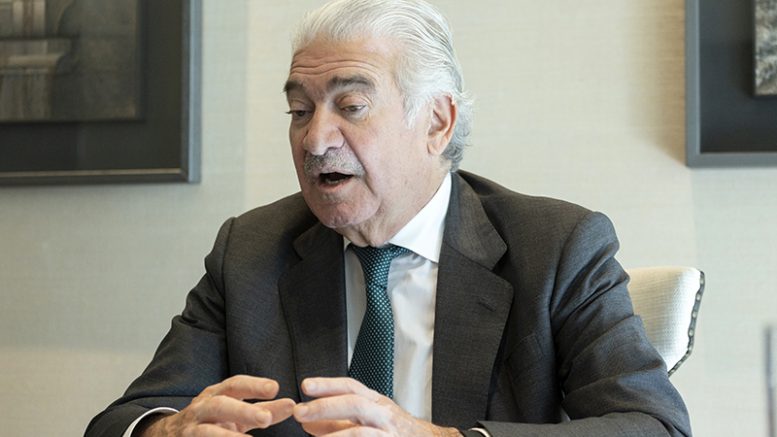José Bogas, ENDESAS’s CEO, explains in Consejeros magazine that “295,000 million of investment is needed for the period 2021-30, and we have many years ahead of us when when we are not investing at this pace. Of these 295,000 million, 118,000 million are for renewables; 85,000 for energy efficiency, but almost nothing has been done so far; 53,000 for networks, which is more than 5,000 every year and we have many years to wait for it. 35,000 for electrification, and we have not yet reached the necessary pace… So the situation is snowballing”
Q- Charts from the International Energy Agency show that despite the increase in renewables around the world, fossil fuel consumption is not going down, we still don’t see a decrease.
A- No, not yet. At present, almost 80% of energy consumption is fossil fuel-based, while renewables account for only 16% and nuclear for 5%. By 2030, according to PNIEC forecasts, oil and gas will account for 56% of the energy mix, while electricity will account for 31%, all measured in final energy. To achieve zero emissions by 2050 – according to the International Energy Agency – emissions need to start falling now, but the key issue is to bring them down in the next decade, from 2030 to 2040. The fundamental challenge with fossil fuels, on a global level, is to drastically reduce emissions in the electricity sector, as has already been done in Spain, and to electrify demand so that it can in turn be supplied by renewable energies.
Q- And in this context, is the nuclear issue taboo?
A- The International Energy Agency, which is the guiding light for all countries in the fight against climate change, says that renewable energies must be multiplied almost fourfold, but also that nuclear power in the world must be doubled by 2050. And that means building new power and replacing the power that is going to be shut down. And it says that if this is not achieved, “Net Zero” will not be reached. It seems clear that nuclear power is necessary.
Q- The latest European energy agreement recognises this. And France continues to increase its nuclear fleet while here it is being closed and there is no investment…
A- It is an energy policy decision. In Spain, we invest every year so that each plant is always up to date with the latest technology, so extending the life of the plant has a marginal cost. At Endesa, for example, we invest around 150 million every year and every ten years there is a review that specifies what needs to be done to be able to continue operating reliably. In France, there is a clear commitment to this type of energy, although it is true that they have another series of problems, as they have to invest heavily in their plants, because they do not carry out maintenance and updating as continuously as in Spain. In Spain, what we have is an agreement for the gradual closure between 2027 – Almaraz – and 2035 of all our plants, although, as I say, this could be extended without excessive investment. If you ask me if I think it will be possible to close all the plants within the planned timeframe, I would say that, although it is the agreed plan, we will see how security of supply evolves. We need a lot of renewable power and a lot of investment in the grid to sustain this plan, and timescales are very tight.
Q- It is said that the Spanish Energy Plan is a model in Europe.
It is a reference model, yes, the problem is that the regulation needs to be developed underneath this model. If things do not change, it will not be fulfilled, it will not be possible.
Q- More than 200 billion of investment is needed, but it is not clear where it will come from.
Yes, 295,000 million for the period 2021-30 and we have not been investing at that rate for several years now, so in the end there is still a lot left. Of these 295,000, 118,000 are for renewables; in energy saving and efficiency 85,000, but almost nothing has been done yet; in networks, 53,000, which is just over 5,000 each year and we have spent several years in the middle. In electrification, 35,000 and we still haven’t reached the necessary pace, so the situation is snowballing.
Q- You can say anything you want on paper…
You can say anything you want on paper, so we have made a good plan, but it must have regulatory support that it does not yet have.





